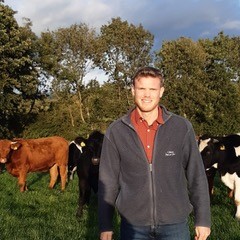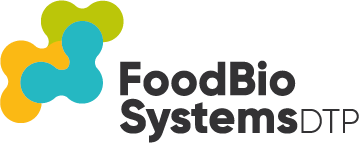Meet doctoral researchers at Queen’s University Belfast (archive)
We currently have 12 PhD students at Queen’s University Belfast. They work on a range of topics including animal health and nutrition. Meet some of our current students here:
 |
Barbara Bray MBE FIFST RNutr
2021-25 cohort
Project title: Design and evaluation of a nutritionally adequate diet for healthy ageing in older UK adults: The Healthy Ageing DIet (HADI) Study
Academic partner: University of Reading
Professional Internship Placement: Social Science Research Group, Food Chain Team, Defra
What is your project about and why is it important to the UK food system?
The healthspan of the UK population lags behind the lifespan. Diet quality has been shown to be a modifiable risk factor in chronic disease and can affect quality of life. My study will investigate the adequacy of food consumption data for older UK adults [65+ years] by applying a linear programme model (known as diet optimisation) to determine which foods and nutrients should be increased in the diet for optimal nutritional and health status.
On completion of the diet optimisation, I will hold co-design workshops with stakeholders to define acceptable foods that would be feasible for targeted nutrient fortification and product innovation for older adults. The stakeholder network for HADI will involve key players in UK agri-food industry, food retail, product development, academia, clinicians, and older people themselves. I will produce a Healthy Ageing Diet (HADI) scoring system and evaluate adherence to HADI in relation to nutritional and health outcomes in nationally representative UK ageing cohorts.
By using taking food systems approach I can ensure that I look at all the areas that impact on these workstreams from across the food system. This is different from the more traditional perspectives on food production and consumption because I will not only focus on the human nutrition component but look at food practices and take into consideration where people get their food from, how it is made and how it is eaten.
How have you found your PhD so far?
I returned to full-time study after working for over 20 years in the chilled foods industry and I have found the transition to academic life is full of twists and turns. It’s been great to meet a wide range of scientists and develop new working relationships. I have found my colleagues to be really supportive when the business of delivering a PhD as a mature student seems overwhelming. |
 |
Joshua Thompson
2020-24 cohort
Project title: Willow (Salix spp): The potential of a tannin-rich tree fodder to reduce ammonia emissions and improve productivity of dairy cattle
Academic partner: University of Reading
I have a CASE studentship and the project is also supported by a non-academic partner.
What is your project about and why is it important to the UK food system?
My project relates to the decarbonisation of the ruminant agriculture sector through reducing methane and ammonia emissions, increasing protein efficiency and production while creating potential for increasing carbon sequestration with livestock pastoral systems.
What have you enjoyed most about DTP training so far?
I have enjoyed collaborating with other students from different universities. It is also good to have a link with relevant food industries and businesses creating contacts for commercialisation and application of project.
Have you met any challenges in your project?
I hadn’t carried out much lab work before my PhD – I did feel a little out of my depth but colleagues were there to train me and guide me through the steps. I learned to try and avoid letting circumstance overwhelm me – it helps to take one step at a time and believe you can do it. |
 |
Christy Wray
2020-24 cohort
Project title: Can many biomarkers make light work of liver fluke parasite diagnostics?
Academic partner: University of Reading
I have a CASE studentship and the project is also supported by a non-academic partner.
What is your project about and why is it important to the UK food system?
Current control methods of liver fluke, a pervasive parasitic worm common in UK/Irish sheep and cattle farms, are heavily reliant on blanket chemical treatments at high-risk periods due to poor diagnostic methods. This is causing selective pressure for drug resistance, putting future livestock at great risk. Novel diagnostics can support targeted treatment, slowing the spread of drug-resistant parasites and giving more time for the development of novel treatment and control strategies.
What have you enjoyed most about DTP training so far and have you met any challenges in your project?
There is a great support for training all DTP students in both specialist areas for the given project and more general training that is useful for all scientists – I’m confident I’ll come out of this DTP with experience in a wide range of skills essential to any scientific discipline, and in industry too.
Getting back into a wet lab after years away was quite an intimidating experience but the DTP, my supervisory team and my lab have been very supportive in getting me the help I needed – I’m now confident with all the wet lab techniques I’ll need for my project.
What are you looking forward to doing next in your project?
Getting into the nitty gritty data analysis! PhDs can be a bit slow to get started but data is starting to flow and I’m excited to see what kind of results we’ll find.
|




